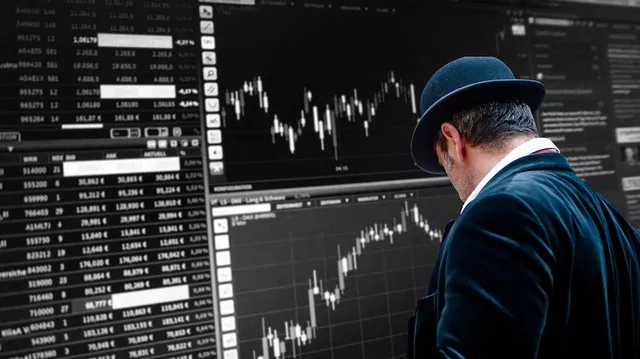In the realm of futures trading, selecting the right broker is paramount to success. With numerous options available, traders must carefully evaluate factors such as fees, platform features, customer service, and regulatory compliance when choosing a broker. In this article, we will explore a curated list of reputable brokers that offer futures trading, compare them based on various criteria, delve into account requirements, trading platforms, fees and commissions, educational resources, customer reviews, and regulatory information.
List of Brokers
Interactive Brokers: Interactive Brokers is a well-established brokerage known for its comprehensive range of trading products, including futures. With competitive fees and a robust trading platform, Interactive Brokers appeals to both active traders and institutional clients.
TD Ameritrade: TD Ameritrade offers futures trading through its thinkorswim platform, which provides advanced charting tools, customizable layouts, and a wide range of educational resources. With no account minimums and competitive pricing, TD Ameritrade is a popular choice for traders of all experience levels.
ETRADE: ETRADE provides futures trading services, offering access to a diverse range of futures contracts across various asset classes. With its user-friendly platform and extensive educational materials, ETRADE caters to both novice and experienced traders.
Charles Schwab: Charles Schwab offers futures trading through its StreetSmart Central platform, which features intuitive navigation, real-time market data, and customizable watchlists. With competitive pricing and a strong reputation for customer service, Charles Schwab is a trusted choice for futures traders.
FuturesOnline: FuturesOnline specializes in futures trading, offering a range of trading platforms tailored to different trading styles and preferences. With low commission rates and a variety of educational resources, FuturesOnline caters to both individual traders and institutional clients.
See Also: Is trading micro futures profitable?
Broker Comparison
When comparing brokers that offer futures trading, several factors come into play:
Fees: Compare commission rates, margin rates, and any additional fees charged by each broker.
Platform Features: Evaluate the functionality, usability, and unique features of each trading platform.
Customer Service: Assess the quality of customer support, including availability, responsiveness, and expertise.
Regulatory Compliance: Consider the regulatory oversight governing each broker and the protections offered to traders.
Account Requirements
To open a futures trading account with any of the listed brokers, traders typically need to complete an application process and meet certain criteria:
Account Opening Process: Follow the broker’s online application process, providing personal and financial information as required.
Minimum Deposit Requirements: Be aware of any minimum deposit requirements imposed by the broker, which can vary depending on the account type and trading platform chosen.
Qualifications Needed: Some brokers may require traders to meet specific qualifications, such as trading experience or net worth, to trade futures.
Trading Platforms
Each broker offers a range of trading platforms tailored to different trading styles and preferences:
Interactive Brokers: Offers the Trader Workstation (TWS) platform, known for its advanced trading tools and analytics.
TD Ameritrade: Provides the thinkorswim platform, renowned for its customizable interface and extensive charting capabilities.
ETRADE: Features the Power ETRADE platform, offering intuitive navigation and real-time market data.
Charles Schwab: Utilizes the StreetSmart Central platform, known for its user-friendly interface and comprehensive research tools.
FuturesOnline: Offers multiple trading platforms, including OEC Trader and Firetip, catering to various trading preferences.
Fees and Commissions
When trading futures, traders should be aware of the fee structure imposed by their chosen broker:
Commission Rates: Brokers may charge commission fees based on trade volume or contract size.
Margin Rates: Consider the margin rates applied to futures positions, as they can affect trading costs.
Additional Fees: Be mindful of any additional fees, such as exchange fees, regulatory fees, or platform fees, which may apply.
Educational Resources
Many brokers provide educational materials and resources to help traders navigate the complexities of futures trading:
Interactive Brokers: Offers a comprehensive array of educational resources, including webinars, tutorials, and interactive courses.
TD Ameritrade: Provides extensive educational materials through its thinkorswim platform, including articles, videos, and live events.
ETRADE: Features educational resources such as articles, videos, and webinars covering various aspects of futures trading.
Charles Schwab: Offers educational resources tailored to different skill levels, including beginner guides and advanced trading strategies.
FuturesOnline: Provides educational materials, including trading guides and market analysis, to help traders stay informed and make informed decisions.
Customer Reviews and Ratings
Customer reviews and ratings can offer valuable insights into the user experience with each broker:
Interactive Brokers: Known for its competitive pricing and comprehensive trading tools, Interactive Brokers receives positive reviews from active traders.
TD Ameritrade: Highly rated for its user-friendly platform and extensive educational resources, TD Ameritrade garners praise from traders of all experience levels.
ETRADE: Valued for its intuitive platform and robust research tools, ETRADE receives favorable reviews for its customer service and educational support.
Charles Schwab: Praised for its reliable execution and responsive customer support, Charles Schwab earns high ratings from satisfied clients.
FuturesOnline: Recognized for its low commission rates and customizable trading platforms, FuturesOnline receives positive feedback from futures traders.
Regulatory Information
Each broker is subject to regulatory oversight by relevant governing bodies:
Interactive Brokers: Regulated by the U.S. Securities and Exchange Commission (SEC) and the Financial Industry Regulatory Authority (FINRA).
TD Ameritrade: Regulated by the SEC and FINRA, ensuring compliance with industry standards and investor protections.
ETRADE: Subject to regulation by the SEC and FINRA, ETRADE adheres to strict regulatory guidelines to safeguard client assets.
Charles Schwab: Regulated by the SEC and FINRA, Charles Schwab maintains a commitment to regulatory compliance and transparency.
FuturesOnline: Governed by the Commodity Futures Trading Commission (CFTC) and the National Futures Association (NFA), FuturesOnline upholds industry standards and best practices.
Conclusion
In conclusion, selecting a broker for futures trading requires careful consideration of factors such as fees, platform features, customer service, educational resources, and regulatory compliance. By conducting thorough research and comparing the offerings of reputable brokers, traders can make informed decisions that align with their trading objectives and preferences. Whether seeking advanced trading tools, educational support, or reliable execution, there is a broker suited to meet the diverse needs of futures traders.


